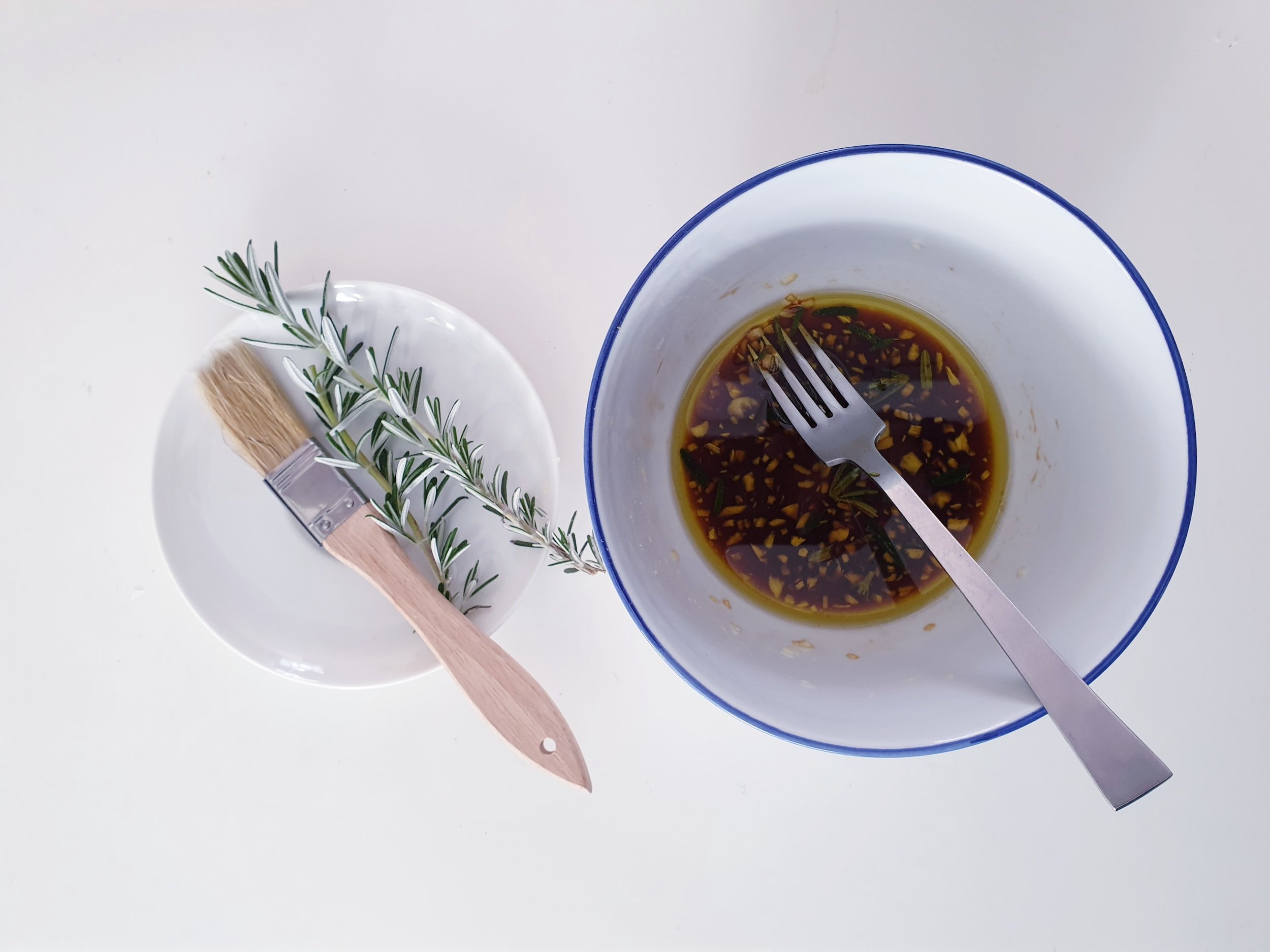Meat Marinades
Discover > Texas Home Cooking > Meat Marinades
As we come into the easter and memorial day season and the weather gets hot, barbeques get dusted and propane tanks get refilled. BBQ season is by far my favorite food season, and that's not just because I'm a sucker for triple-digit weather, but because Texas happens to be home of some of the best bbq I've ever eaten. So is there really a better time to get into making marinades?
The word 'marinade' is believed to be derived from Latin- 'aqua marina' which alludes to the use of brine in the pickling process, although a marinade is neither a brine nor a pickle. The difference in either liquid is more or less under the umbrella of acidity, pickling brine is normally more acidic and happens over a much longer period of time, brine is essentially water and salt at its unadorned and doesn't usually involve much acidity, and marinade is a balance of vinegar, oil, herbs, and spices and can be done anywhere from a few seconds to a couple of days depending on what you're making.
Marinading is also a way of tenderizing and flavoring the meat. The acid in the marinade breaks down the protein in the muscle fibers allowing them to absorb more flavor and moisture. A good rib marinade requires the correct ratio of acid, oil, and herbs, too much acid, in particular, can be detrimental to a cut of meat. If raw marinated meat is frozen it can be even more detrimental and cause the meat to go mushy.
Marinades typically have an oil to acid ratio of 3:1. So if you were to use a cup of oil, ⅓ of a cup of acid would be a safe counterpart, but consider what you're marinating. Delicate meats like fish can be easily turned to much if you use too much vinegar, too little for a particularly tough cut like a flank steak could use a bit more. Many marinades also call for an emulsifier, usually mustard (how long does mustard last?), because obviously oil and vinegar won't mix naturally. Emulsifiers are attracted to polar and non-polar compounds which is just a dance way of saying they attract both water and oil molecules.
Some common acids used in marinades are wine, apple cider vinegar, wine vinegar, and citrus juice, although there are hundreds of kinds of vinegar to choose from depending on the cuisine you're cooking. The opposing oil you use it's relatively unimportant, I personally recommend getting a cheaper oil like peanut oil or canola oil, unless you're making a sauce out of the marinade, in which case it makes sense to go for richer olive oil or avocado oil maybe, play around with it.






